RHI scandal 'struck at the heart of NI democracy'
- Published
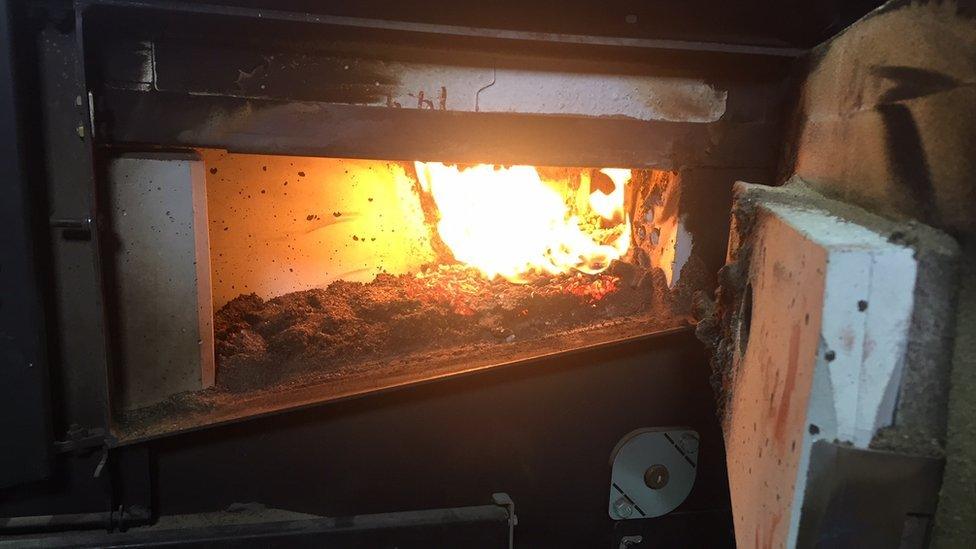
There are about 2,000 boilers accredited to the RHI scheme
The independent public inquiry into a flawed green energy scheme has been told that the scandal struck at the heart of Northern Ireland's democratic institutions.
The claim was made at the opening of the Renewable Heat Incentive (RHI) scheme inquiry by David Scoffield QC.
The government scheme, which started in 2012, helped collapse the Stormont Assembly in January.
It encouraged businesses to switch from fossil fuels to biomass or woodchip.
But a lack of cost controls meant it could have an overspend of £700m over 20 years.
The inquiry, which is being led by retired appeal court judge Sir Patrick Coughlin, opened on Tuesday morning.
He said that the inquiry would seek to be a "measured, objective, independent and publicly-transparent investigation".
He added that the inquiry team had already examined one million pieces of documentary evidence.
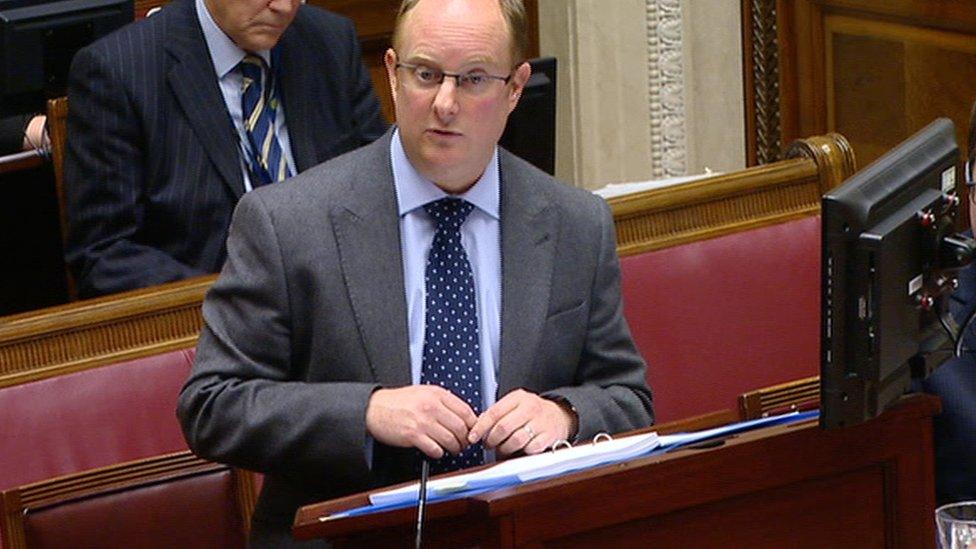
David Scoffield QC making his opening remarks to the inquiry on Tuesday morning
Mr Scoffield, counsel for the inquiry, outlined some of the documentary evidence including text messages and emails written by politicians at the time of an "explosive" interview given by former DUP enterprise minister Jonathan Bell to the BBC.
Mr Bell criticised his predecessor in the job, the DUP leader and former first minister, Arlene Foster, as well as some advisers.
He was suspended from the party after the interview.
Mr Scoffield added that both Mr Bell and Mrs Foster would give evidence to the inquiry voluntarily, along with five DUP special advisers: Timothy Cairns; Andrew Crawford; Stephen Brimstone; John Robinson and Timothy Johnston.
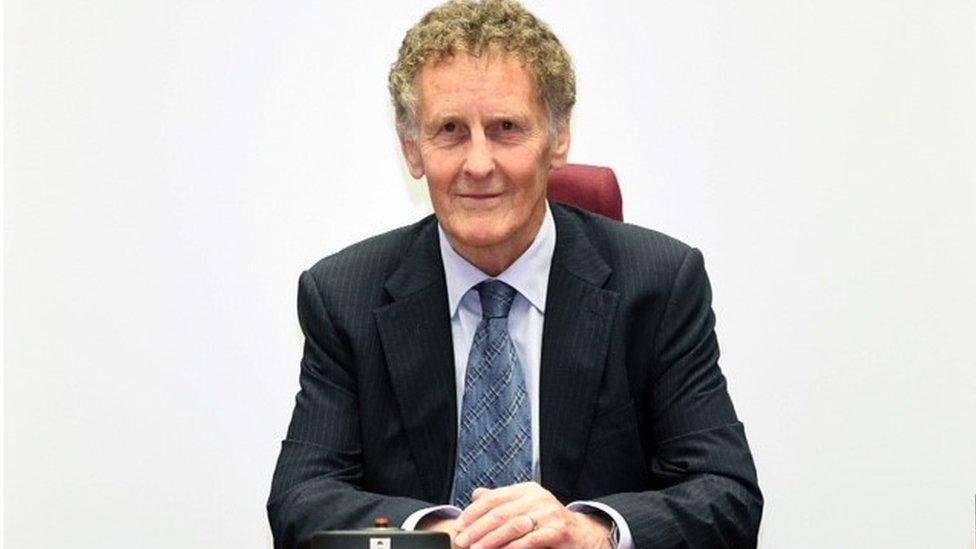
Sir Patrick Coghlin is chairing the inquiry, which is expected to take several months
He told the hearing that public concern had reached "fever pitch" as outcry over the scheme grew and that the inquiry would investigate a number of key allegations.
This included what he described as "the most damning claim" - that politicians and their special advisers had interfered to keep the scheme open when it ought to have been closed, by delaying the introduction of cost controls.
He said that the allegation of interference created the impression to the public of "improper patronage" and that it was claimed some had a "conflict of interest" because they personally, or their relatives, had an interest in the scheme.
'More questions than answers'
He said other claims that would be investigated by the inquiry include:
Weaknesses in the scheme meant boiler owners had a "perverse incentive" to burn more fuel to earn more subsidy
Allegations of fraud
That the bill would have to be met by Northern Ireland's taxpayers
That there were opportunities to fix flaws in the RHI scheme that were missed
Mr Scoffield added that while there were "no obvious victims" of the debacle, it would be wrong to say there were no victims at all.
He said many people were angry by how the scheme had panned out and it would be "hard to find a taxpayer" who did not have serious questions about the use of significant amounts of public money to pay "unplanned debt" over the scheme.
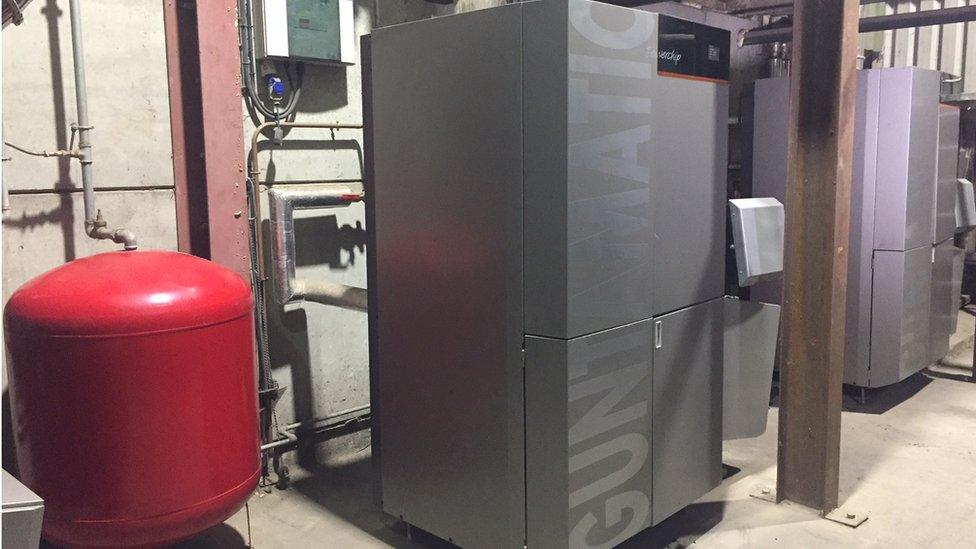
RHI was a government scheme, started in 2012, which encouraged businesses to switch from fossil fuels to biomass or woodchip.
He said only the final report would address issues of responsibility for problems in the scheme.
Mr Scoffield said the inquiry would not address issues of civil or criminal liability, or whether individual applications were legitimate under the terms of the scheme's regulations.
The inquiry team is investigating the non-domestic green energy scheme, the overspend from which might have to be paid out of Northern Ireland's block grant from Westminster.
The row over the handling of the crisis contributed to the collapse of devolution in early 2017.
The scheme was introduced in 2012 by the Department of Enterprise, Trade and Investment (DETI).
On Tuesday, a statement outlining the RHI scheme "from inception to the present day", external was released online by the Department for the Economy, the department that replaced DETI.
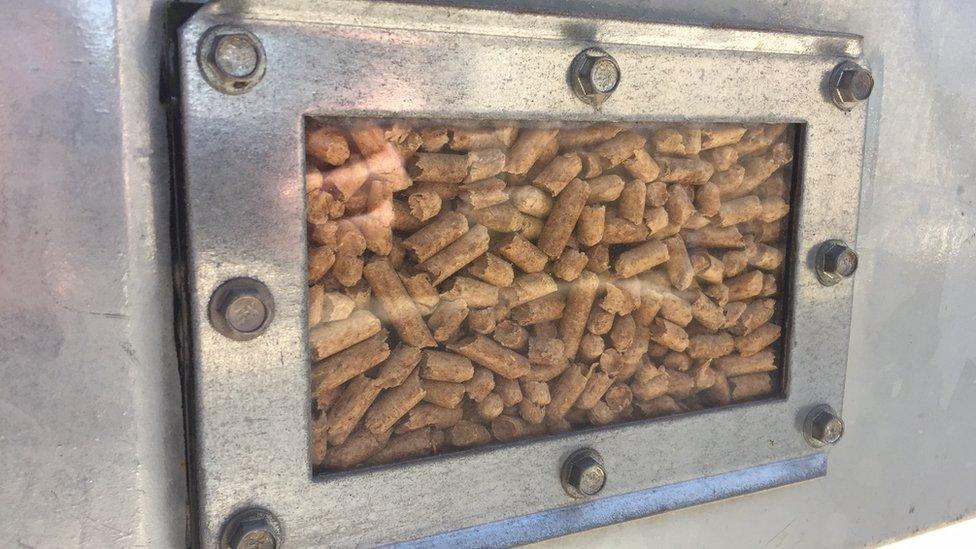
Many of the boilers, like this one, burn wood pellets
The department later uploaded a series of documents onto the RHI inquiry website, external. They shed more light on the department's own take on what went wrong with the scheme.
These documents refer to a handover note from an official at the then Department for Enterprise, Trade and Investment. The official was involved in the day-to-day running of the RHI scheme.
When he left the department in 2014 - and there was a high turnover of staff in the department at that time - he left a detailed note that contained a number of priorities that required immediate attention.
They included a review of RHI tariffs and consideration of cost controls to prevent excessive payments. The review never happened.
And the Department for the Economy comments: "Unfortunately these points were not acted upon. The department commissioned consultants PwC to examine why this happened but the work was suspended before conclusions could be drawn."
The department adds the concerns in the handover note were not escalated and RHI was not among the top issues raised in a briefing for the new permanent secretary in July 2014.
Cost controls
The inquiry will look at the introduction of the scheme, the oversight of it, the introduction of controls in 2015 and the suspension of the scheme the following year.
In particular, it will consider why the Northern Ireland scheme did not contain the same cost controls from the outset as the one in Great Britain, which it mirrored.
Key allegations it will address include that a spike of applications in Autumn 2015 was caused by firms being aware, in advance, of impending cuts to tariffs.
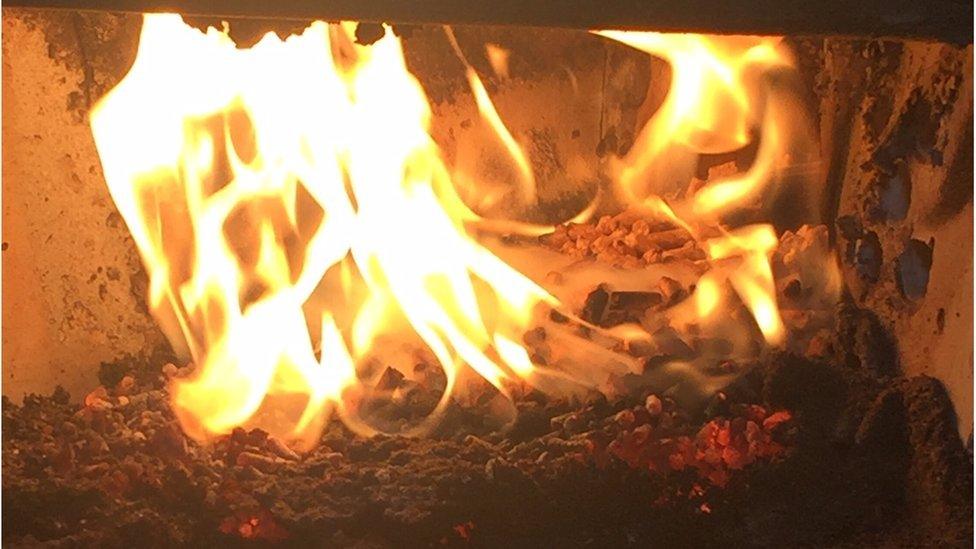
Firms could legitimately earn sizeable subsidy by burning the fuel
It will also investigate whether there was political interference by DUP special advisers to delay the introduction of cost controls. That has been denied by the special advisers.
Fourteen witnesses will give evidence between now and Christmas.
It is expected that Mrs Foster and Mr Bell will not give evidence until 2018.
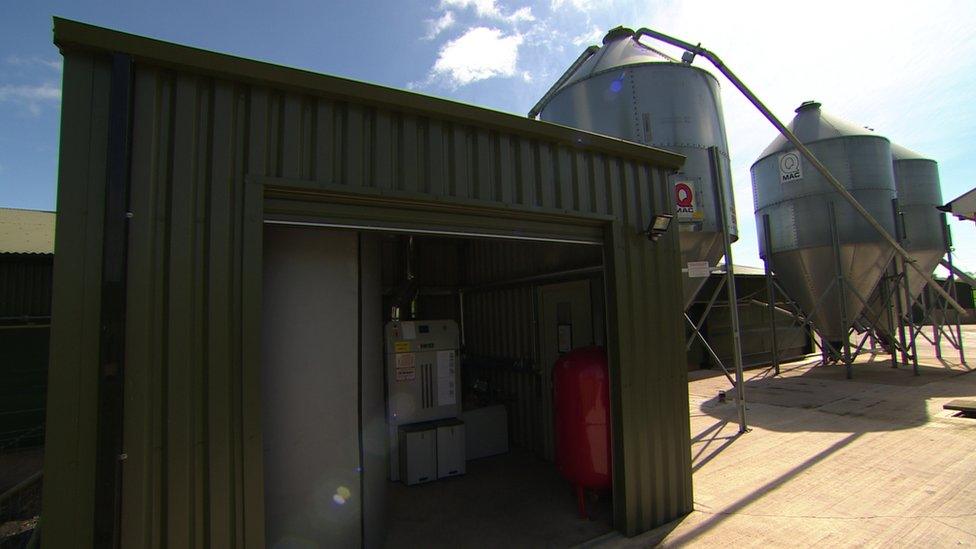
Many of the boilers are in agriculture businesses including poultry
The RHI scheme was shut to new applicants in 2016.
One year cost controls have been applied by the Department for the Economy that have drastically reduced the 2017/18 in-year overspend.
But they expire at the end of the financial year.
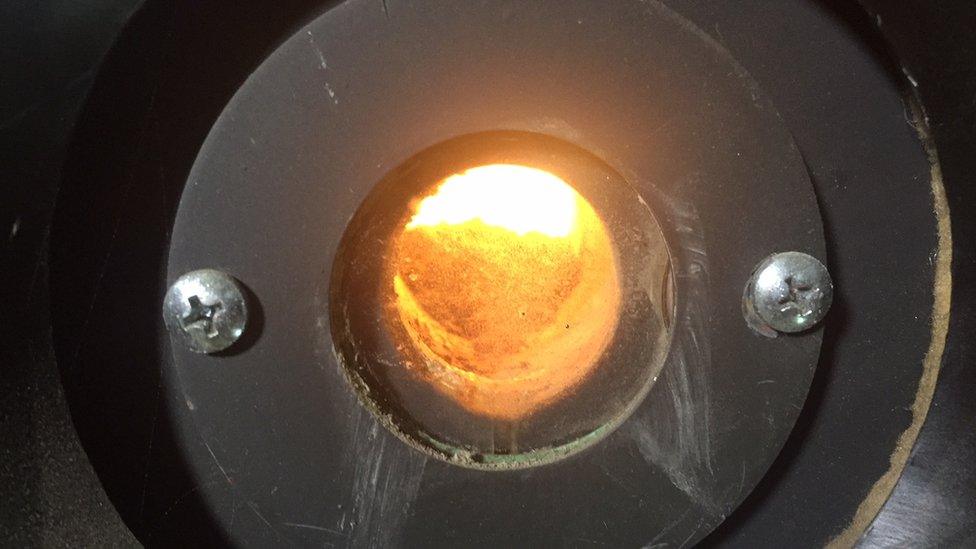
One-year cost controls are currently in place
The department has announced plans to extend them for a year, but that will require assembly approval or the decision of a direct rule minister.
The cost controls are also the subject of a legal action by boiler owners who claim the cuts in tariffs were illegal.
They claim the projected overspend is vastly inflated and could be in the region of £160m, not £700m, over 20 years.
Judgement in that case has been reserved.
- Published7 November 2017
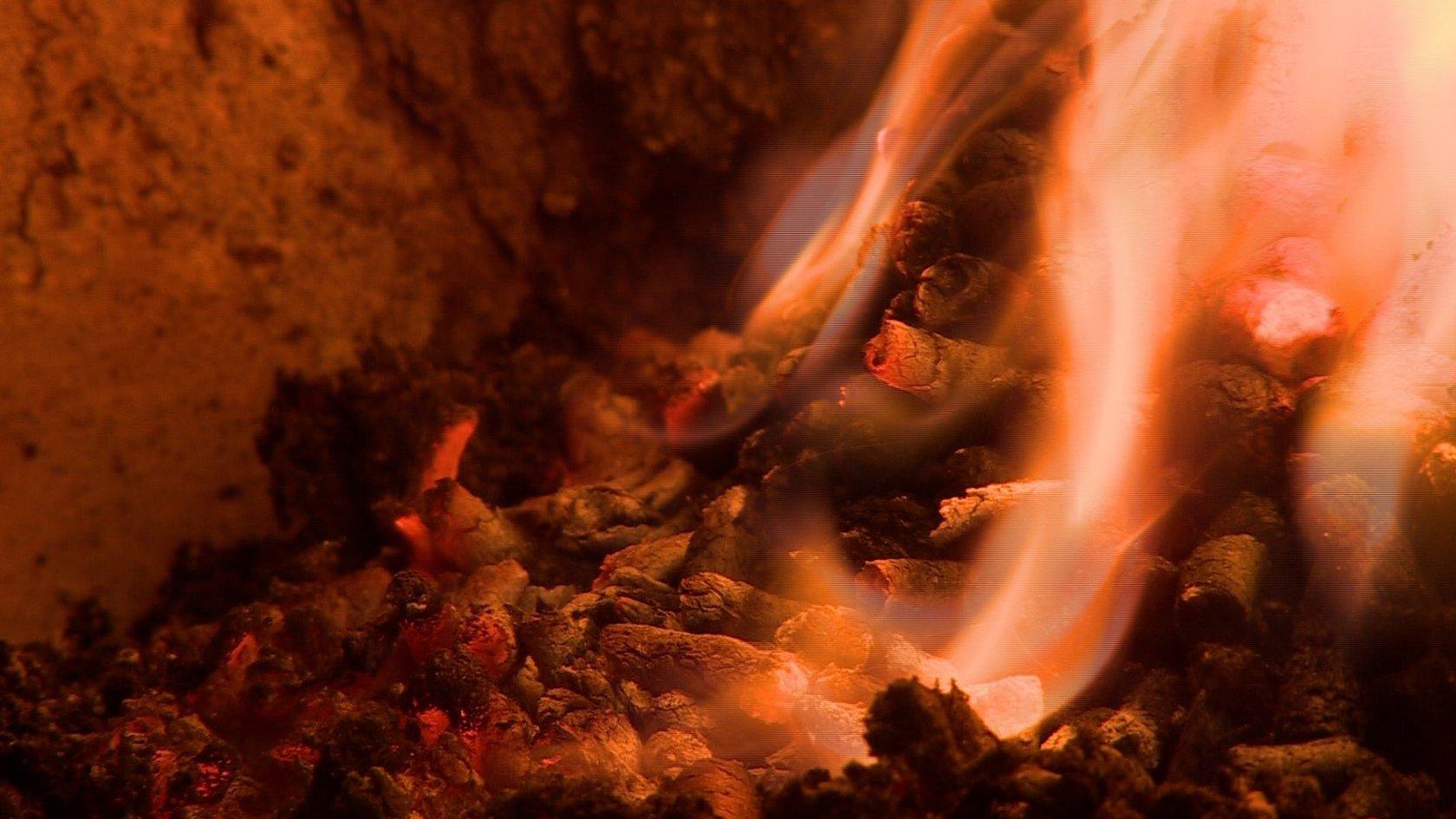
- Published7 November 2017

- Published23 October 2019
